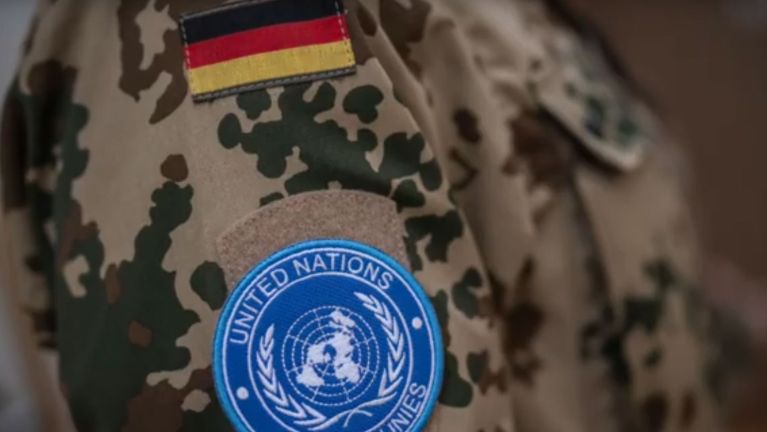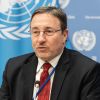50 years as a valued member of the UN
Germany has officially been a member of the United Nations since 1973. In the following years, the Federal Republic of Germany assumed ever more responsibility.
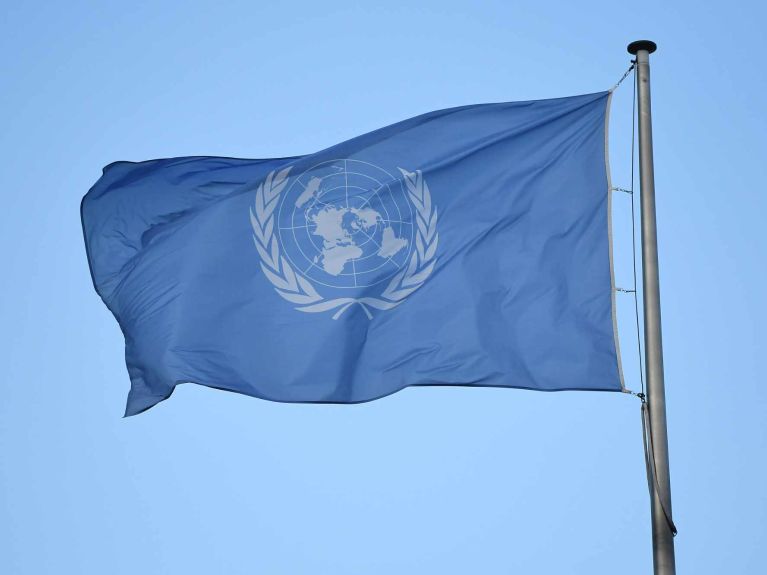
51 founding states comprised the United Nations (UN) when the UN Charta, the founding document of the community of states, entered into force on 24 October 1945. Just a few months after the end of the Second World War, German membership was unthinkable. It was not until 1973 that the Federal Republic of Germany and the then German Democratic Republic (GDR) joined the alliance. In 2023, Germany is now celebrating 50 years in the United Nations, and today is one of its leading supporters and funders. A look back at the history of the UN and Germany’s role:
From the founding of the UN to German membership
The idea of the United Nations was already born during the Second World War while fighting against Nazi Germany. In August 1941, US President Franklin D. Roosevelt and British Prime Minister Winston Churchill laid out their principles and visions for a post-war order in the “Atlantic Charta”, which is regarded as an important milestone in the later establishment of the United Nations. Not even two months had passed since the end of the Second World War when the UN Charta was signed in San Francisco on 26 June 1945, the constitution of the community of states then coming into force on 24 October 1945. In Article One, the United Nations defines its purpose as being “to maintain international peace and security”.
The Federal Republic of Germany and the German Democratic Republic (GDR), both of which were founded four years after the end of the war in 1949, had no place in the community at first. However, the Federal Republic already attained “observer” status at the United Nations in 1952, meaning it was already tied more closely to the community. On 18 September 1973, the FRG and the GDR officially joined the United Nations as the 133th and 134th members.
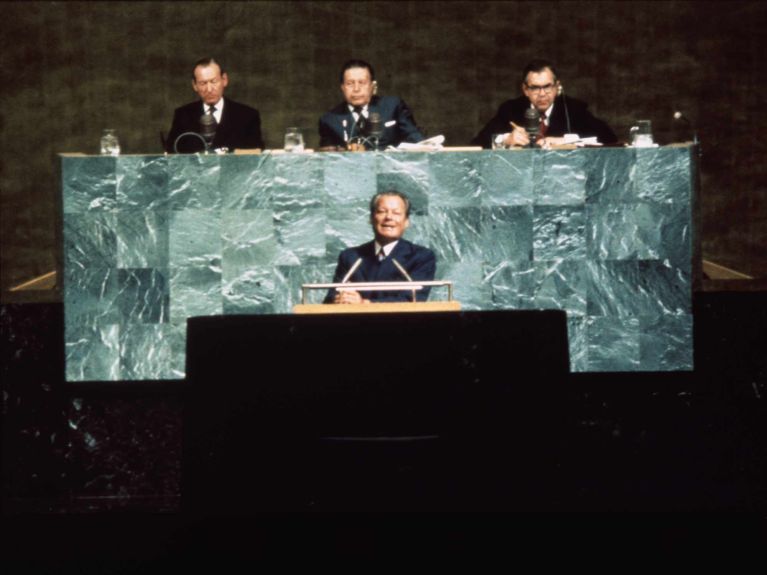
Growing responsibility following reunification in 1990
When Germany reunified in 1990, its dual membership came to an end after 17 years. In the following years, Germany assumed ever more responsibility in the United Nations: In the meantime, Germany has taken part in numerous UN peacekeeping missions and has been a member of the UN Security Council several times.
One visible sign of Germany’s commitment are the numerous UN institutions located in Bonn: Back in 1951, a liaison office of the UNHCR refugee agency opened at the then seat of the West German government. Today, the UN Campus in Bonn is home to 26 institutions in which around 1,000 people work. Their activities focus on sustainability, environment and climate, and on education, knowledge transfer and innovation. Other UN institutions are also to be found in Berlin, Dresden, Frankfurt am Main, Hamburg, Nuremburg and Munich.
Germany’s role in the United Nations today
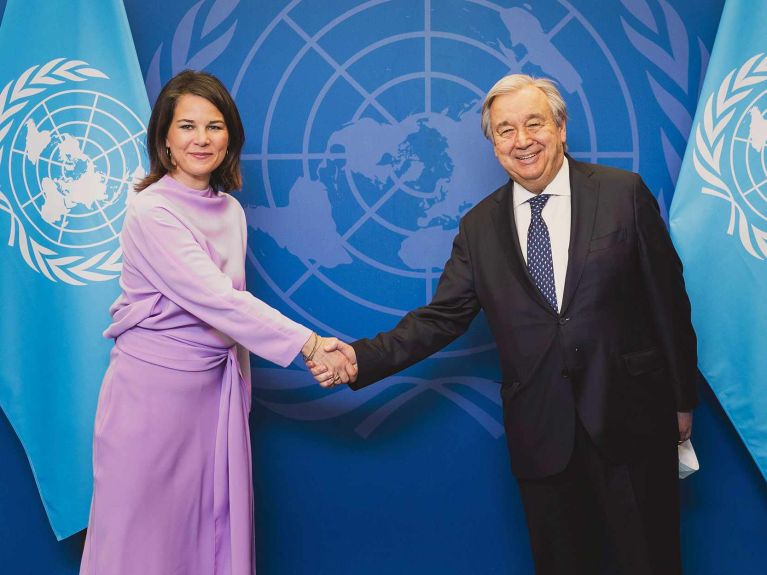
TheFederal Republic of Germany is now the second-biggest contributor to the UN system as a whole and the second-biggest bilateral donor of humanitarian aid. Furthermore, the German government is committed to strengthening the United Nations so that the international community can better tackle the major global challenges such as the climate crisis. Germany also wants to assume responsibility once again in the UN’s most important body, which is why it is applying for a non-permanent seat on the UN Security Council in the years 2027 and 2028.
An article by Germany's Foreign Minister Annalena Baerbock on "50 years Germany in the United Nations" you can find here.
Dieses YouTube-Video kann in einem neuen Tab abgespielt werden
YouTube öffnenThird party content
We use YouTube to embed content that may collect data about your activity. Please review the details and accept the service to see this content.
Open consent form